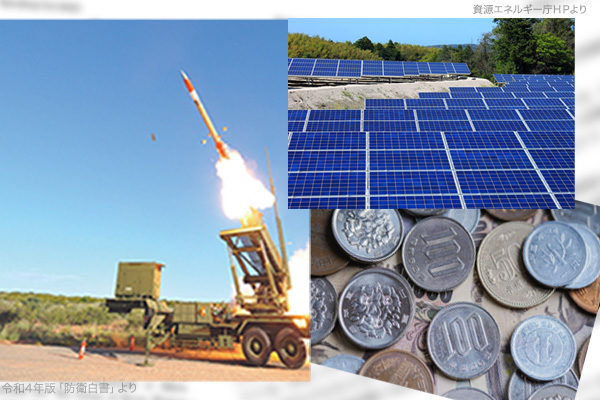In the ruling Liberal Democratic Party’s upcoming leadership race, I would like to see lively debates on Japan’s national issues. I would like candidates to actively discuss three key topics: reducing the consumption tax, revising the renewable energy promotion policy, and raising defense spending to 3% of gross domestic product (GDP). My reasoning is as follows:
Consumption tax reduction and renewable energy policy revision
The first issue is the consumption tax reduction. Thanks to Abenomics that started in December 2012, Japan’s economy is getting back on a growth path. Stock prices have risen, exports have expanded, the unemployment rate has improved, and tax revenues have increased. However, corporate capital investment, personal income, and household consumption have been sluggish. That’s why the Democratic Party for the People attracted the working generation by calling for increasing take-home pay. In order to increase disposable income, Japan should aim to become a country with high earning potential by increasing science and technology spending, while clearly committing to measures like cutting the consumption tax and social insurance premiums.
The second issue is the revision of the renewable energy promotion policy. Electricity, gasoline, and other energy price hikes are causing great damage to low-income people, rural residents, and business activities. Energy price drops can lower the national burden ratio and stimulate manufacturing and other domestic business activities. One of the factors that have led to energy price hikes is the promotion of renewable energy. Moreover, strategic minerals are required to promote renewable energy, leading Japan to increase its dependence on China. This point cannot be overlooked. On the other hand, the long-term use of domestically developed nuclear technology is a reasonable measure for energy security, the prevention of global warming, and economic efficiency. Therefore, it is important to revise the renewable energy promotion policy and shift policy toward the long-term use of nuclear power.
Raise defense spending to 3% of GDP
The third issue is to raise defense spending to 3% of GDP. In December 2022, the government of Prime Minister Fumio Kishida decided on defense spending worth about 43 trillion yen over five years, as well as three new security documents. Defense spending as a percentage of GDP in Japan, though increasing, remains lower than in the United States and the North Atlantic Treaty Organization. Therefore, Japan should aim to increase its defense spending to 3% of its GDP and build independent defense forces by increasing equipment utilization rates, the actual number of self-defense officials, and fuel and ammunition stockpiles to improve quick reaction capabilities and by rapidly expanding fuel and ammunition production, constructing new ammunition depots, and increasing the military use of civilian airports and seaports to enhance warfighting sustainability. At the same time, Japan should drastically strengthen its alliance with the U.S., while also seeking to provide military support to Taiwan, the Philippines, Australia, and others.
Defense spending as 3% of GDP amounts to about 18 trillion yen, only about one-eighth of U.S. defense spending. The U.S. Congress passed an $895 billion (about 139 trillion yen) national defense authorization act in December 2024. In order to protect Indo-Pacific freedom and prosperity from Chinese, Russian, North Korean, and other threats, Japan should shift its defense budget mindset from one focused solely on exclusive self-defense to one grounded in proactive contribution to peace.
In summary, I hope the LDP will use the leadership race as an opportunity to make a significant shift from its existing policies.
Michio Ezaki is a member of the Planning Committee at the Japan Institute for National Fundamentals and a specially-appointed professor at Reitaku University.


